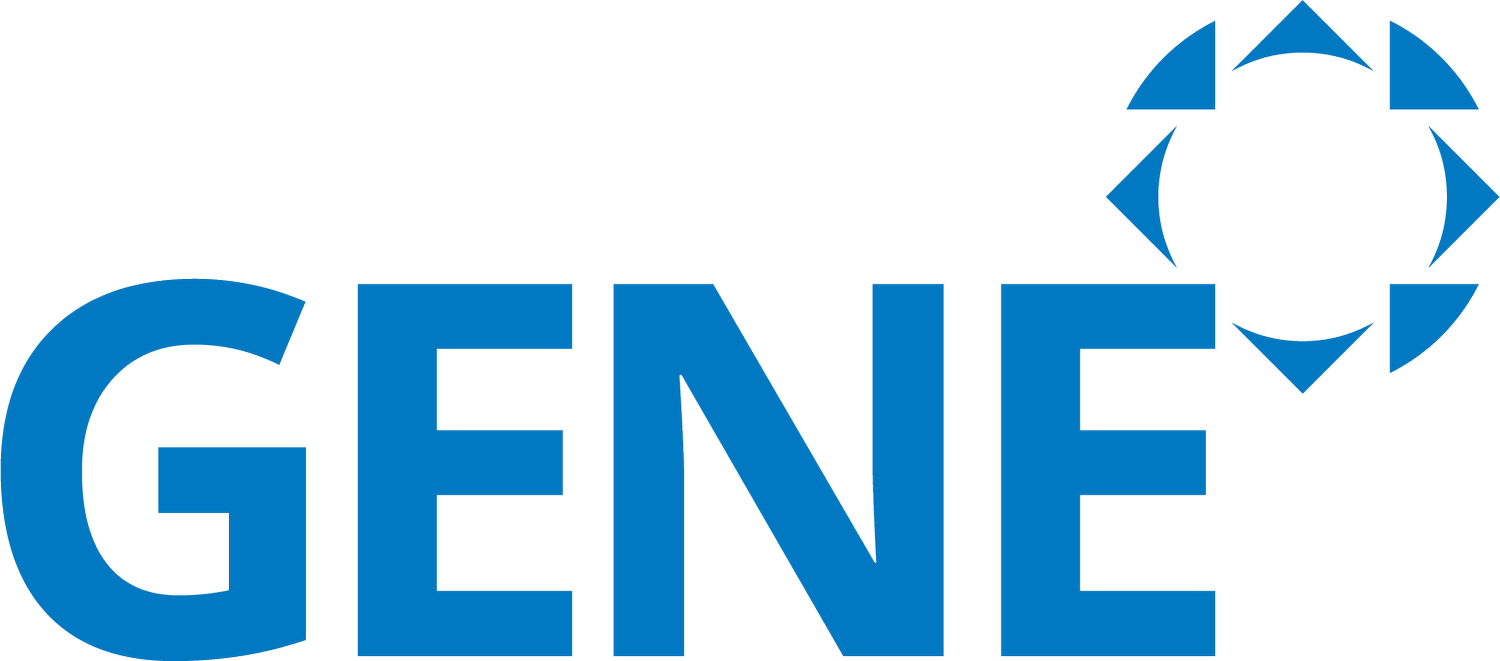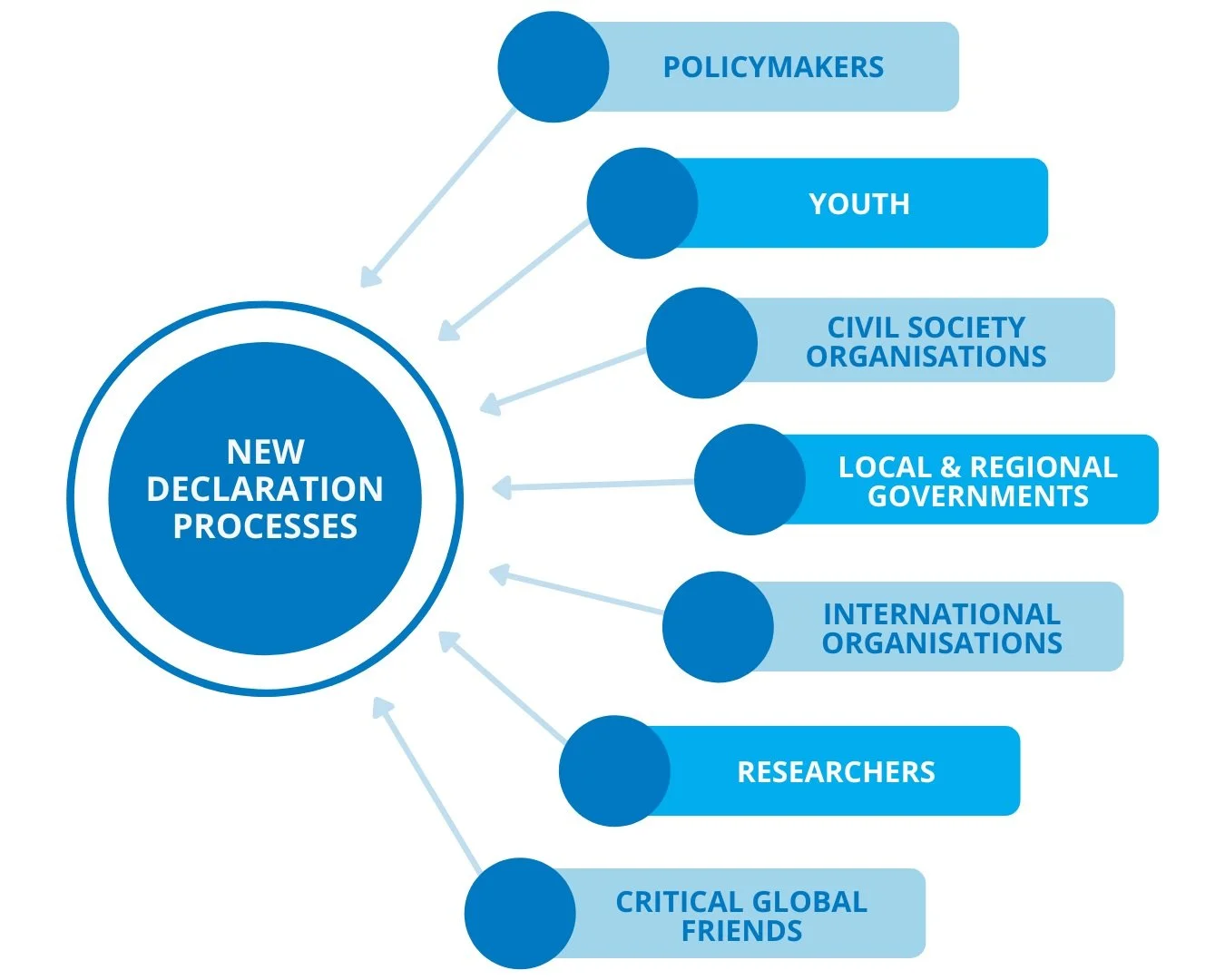
How did we develop the new Declaration on
Global Education to 2050?
On 14 June 2021, GENE launched a process to develop the new Declaration. The purpose of the process was to create a long-term vision and to build broader and deeper political support and commitment to Global Education.

The process was led by policymakers from Ministries and Agencies across Europe in consultation with the European Commission, youth and civil society organisations, local and regional governments, international organisations, academia and global critical friends.
Engagement and Consultation
The engagement processes from June 2021 to November 2022 included bilateral and multilateral meetings with policymakers, international institutions and other key stakeholders. Each of these processes has been tailor-made and developed in partnership, to ensure that specific views, needs and possibilities of each stakeholder are considered.
Background
This process came 20 years after the Maastricht Congress and Declaration brought together actors from different strands and traditions of education for social change, breaking down silos and enabling synergies between development education, human rights education, education for sustainable development, global citizenship education, peace education, etc.
Since then, Global Education policy and practice have evolved, as have political, social and educational contexts in Europe and globally. New international frameworks have emerged, not least the SDGs. Agenda 2030 comes to an end in eight years, prompting questions around what is needed now and beyond 2030 to ensure Global Education for all people in Europe, in solidarity with peoples globally. The process towards a new Declaration identified the vision and the necessary commitments to achieve this.
To learn more about the Declaration, please read the Concept Note.
Political processes
-
Policymakers are GENE’s core group, consisting of representatives from Ministries of Foreign Affairs and Ministries of Education and their respective agencies. Policymakers contributed to the Declaration process at GENE Roundtables and through bilateral dialogue throughout the process. Engagement was intended to dove-tail with existing and emerging processes at national level (strategy development, evaluation processes, mapping exercises, etc.) and was based on GENE’s endogenous methodology: national level first, international level builds on that.
-
At the international level, GENE was in dialogue with key international organisations with a stake in Global Education (such as the EC, UNESCO, OECD, UNECE, COE/NSC) in order to identify synergies with current and future processes and strengthen, recognise and refer to each other’s work. The process took place through a series of bilateral and multilateral dialogues, feeding into the new Declaration process.
Stakeholder processes
-
Youth organisations in the Global Education field were engaged in a working group following an open call for expressions of interest developed in consultation with the European Youth Forum. The work was led by a number of National Youth Councils and European youth organisations with proven expertise in the field of global education and fed into the new Declaration process.
-
Civil society organisations (CSOs) with expertise in Global Education were engaged in a large working group following an open call for expressions of interest conducted in cooperation with CONCORD, involving networks of networks, thematic umbrella networks; and through national-level-first processes. The consultative CSO process fed into the Declaration process, culminating in the European Congress on Global Education in Europe to 2050 on 3-4 November 2022.
-
Local and regional governments (LRGs) were engaged through a partnership with Platforma, a European coalition of towns and regions engaged in development cooperation. The engagement with LRGs was, in addition to feeding into the declaration process, intended to create links with local and regional Global Education, develop partnerships and mechanisms of mutual interest.
-
GENE worked with research and academia through ANGEL to bring a research perspective to the Declaration process and to consider the developments and movements in Global Education over the last 20 years.
-
GENE invited a number of thought leaders and experts in Global Education from countries outside of Europe to jointly reflect on the vision for Global Education in Europe to 2050 during the process leading up to the Congress on 3-4 November 2022.
Timeline
The launch of the process
The process was launched with a high-level political event on 14 June 2021, opened by EU Commissioner for International Partnerships, Ms. Jutta Urpilainen. Ministers of Education, Foreign Affairs and International Development from across Europe engaged in a dialogue on the importance of Global Education to education policy, foreign policy and international cooperation.
Short video of the EU Commissioner for EU International Partnerships, Ms. Jutta Urpilainen, opening the launch event.
“Global justice, human rights and sustainability can be achieved - if we act in solidarity globally. The crucial key is education that opens people’s eyes to the causes of injustice - local and global - and encourages us to get involved to learn how to change things – that is Global Education!”
— Prof. Annette Scheunpflug, GENE Chair
Want to know more? Contact the GENE Secretariat.
This website was created and maintained with the financial support of the European Union and the Ministries and Agencies that support GENE. Its contents are the sole responsibility of GENE and do not necessarily reflect the views of the European Union.





